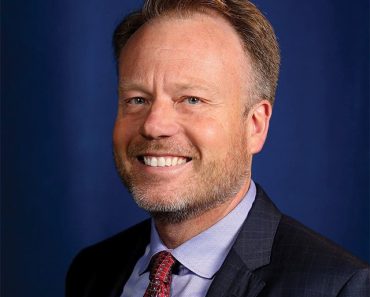[ad_1]
It also showed the value of target-date funds, the retirement researcher says.
In the experience of Michael Finke, the retirement researcher and educator, a wealth of interesting research exists to help illuminate the important role that financial advisors play with their clients. Sometimes, though, there is nothing like reviewing a real-world test case when it comes to demonstrating the true impact that financial advisors can have.
As Finke recently noted in an interview with ThinkAdvisor, the acute phase of the COVID-19 pandemic offers about as good of an empirical test case as one could expect to find as a financial researcher.
“Economists don’t get many chances to see what people do when stock prices fall by 26% in four days, but the pandemic offered that opportunity,” Finke said. “It was a natural experiment, in a sense. We haven’t had a lot of similar opportunities to see how investors react to such a shock.”
According to Finke, there is essentially no end to the potentially useful economic questions applicable to the pandemic period, but one important topic he and various colleagues have been working on is the following: What role were advisors and asset managers able to play in helping their clients avoid the common behavioral traps that inevitably come about during periods of significant market stress?
In a word, Finke said, the role is critical. The evidence shows that the influence these parties can play in helping clients avoid costly money management mistakes is growing increasingly important as the equity and bond markets evolve and portfolios become more complex.
What is clear, Finke said, is that those with direct access to financial advisors made far fewer market-timing mistakes during the COVID-19 crisis, while retirement plan participants using target-date funds and managed accounts also fared much better than peers who directly managed their own portfolios.
To put it simply, Finke suggested, the pandemic period showed just how much the typical investor needs the guidance and support of a prudent financial professional — and that mass-market solutions such as the target-date fund, even if imperfect, can provide a lot of the same benefits to middle-class consumers as more sophisticated (and expensive) advisory options.
A Lens on Recent Research
As Finke recalled, a number of papers have been published that examine how defined contribution participants responded to the March 2020 pandemic crash, including one he worked on directly alongside David Blanchett and Jonathan Reuter, “Portfolio Delegation and 401(k) Plan Participant Responses to COVID-19.”
“We were most interested in whether delegation of investments to a professional through the use of a default investment such as a target-date fund let less sophisticated investors avoid pulling money out of stocks after the market crashed,” Finke said.
In the study, the trio found strong evidence that there is an important benefit that comes along with handing ongoing investment oversight over to a professional: less ill-timed trading during significant but short-lived market troughs.
“When the markets crash, you don’t feel like it’s your responsibility to make a change [if you own a target-date fund],” Finke suggested. “This is consistent with the Morningstar analyses of investor underperformance in mutual funds. They find the lowest underperformance among the set-it-and-forget types of funds that allow an investor to step away from their investments.”
In Defense of Target-Date Funds
Finke said similar conclusions are drawn in another paper he contributed to in the wake of the acute pandemic period, which he recently presented at an event hosted by the Defined Contribution Institutional Investment Association, “Professional financial advice and investor behavior during the COVID‐19 pandemic.”
“We looked at participants in two different types of defaults — a managed account where the portfolio is customized for the participant and the traditional target-date fund that has the same allocation for all participants [of the same age],” Finke explained. “We also looked at self-directed participants.”
As Finke recalled, when the market crashed, self-directed and managed-account participants were more likely to contact their retirement account’s recordkeeper. However, the ones in a managed account that had access to expert advice were far less likely to initiate a trade, while the self-directed individual was most likely to trade — and trade badly.
Finke said another big finding was that target-date fund investors were far less likely to call, but when they did call, they often initiated a trade. Finke said this is likely because they didn’t have an advisor to talk with.
“Our findings are consistent that being able to talk with a human is important for emotional regulation,” Finke said. “When the markets crash, the advisor can help talk you off the ledge. You might even start to think about the importance of advisors themselves having access to sources of independent advice. We’re all affected by our emotions.”
Contrary to what others may say, however, Finke argued this finding is not really a “blow” to target-date funds, as such funds are still associated with much better outcomes compared with self-directed investors. The real story is about the power of human-delivered financial advice during times of acute market panic.
Delegation Can Have a Downside
While emphasizing the importance of such findings, Finke also warned of a downside to delegation, pointing to yet another paper he recently participated in, “Defaults and Consumer Response to Rainy-Day Funds: Evidence from 401(k) Participants during the COVID-19 Pandemic.”
“We found that default investors in industries that saw widespread unemployment were less likely to take advantage of a temporary pandemic program that gave them an opportunity to access retirement savings funds that could help them maintain their lifestyle during an economic crisis,” Finke said.
In other words, “defaults are great when ignoring one’s investments benefits workers but not so great when workers need to pay more attention to their investments.”
Pictured: Michael Finke
[ad_2]
Source link
